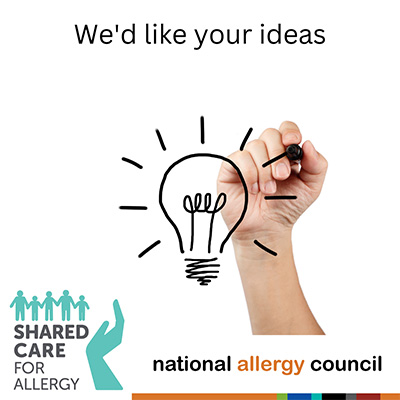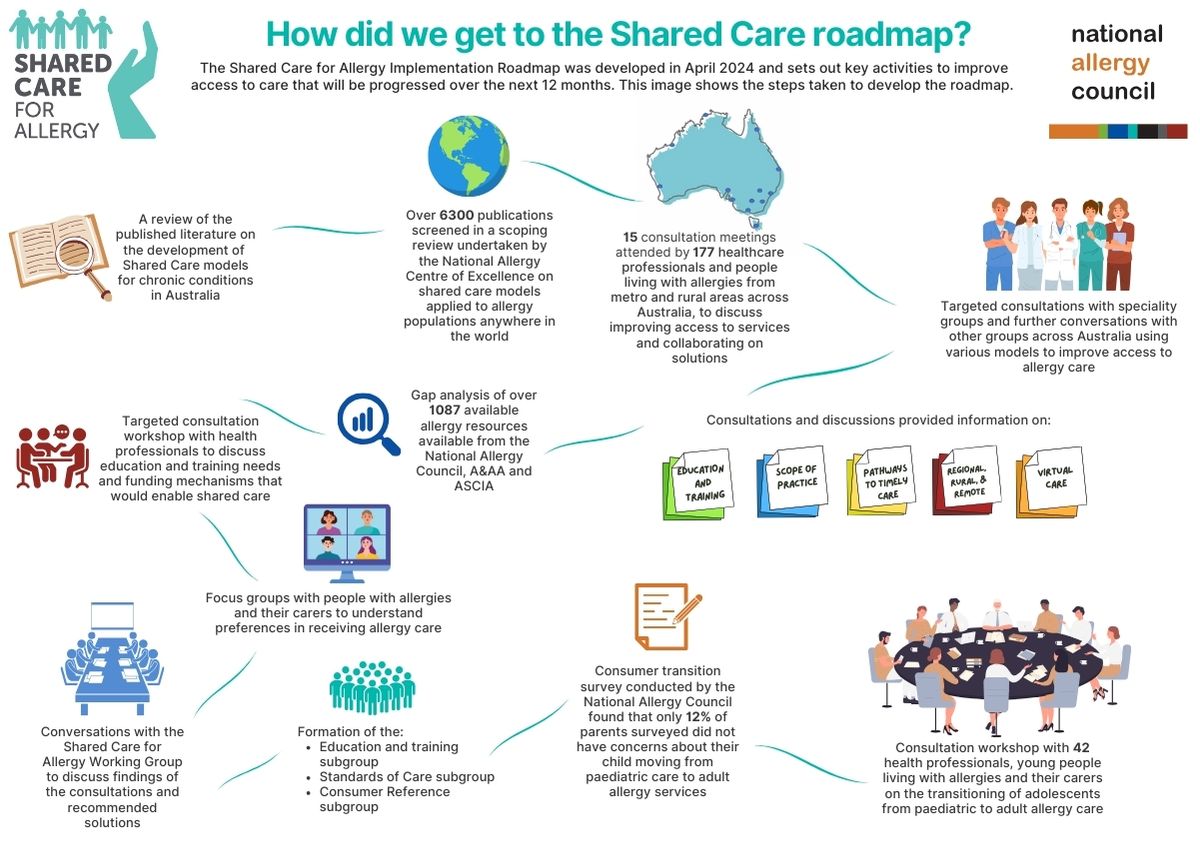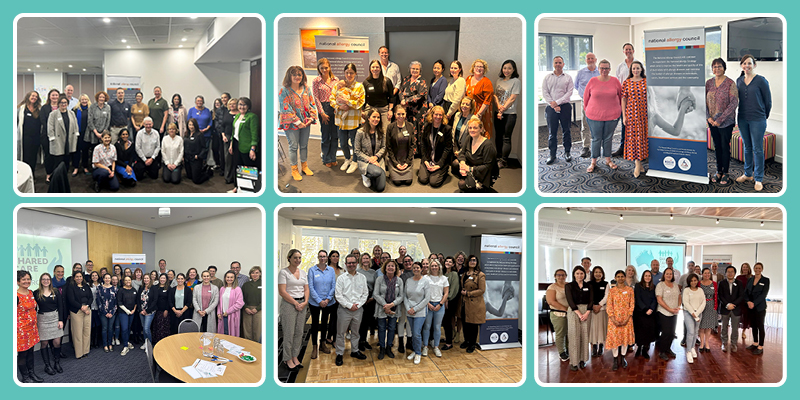Consultation hub
The National Allergy Council is progressing a Shared Care for Allergy project in close consultation with people with allergies and those who care for them. We would like to thank everyone who participated in our consultations and gave us their ideas for improving access to quality allergy care in Australia.

Implementation roadmap - April 2024
Your ideas have been developed into a Shared Care for Allergy Implementation Roadmap which sets out key activities being progressed over the next 12 months. The roadmap was developed based on consultations with people with allergies, those who care for them, healthcare professionals and meetings with our working groups. This image shows the steps taken which underpin the roadmap.
Read more about the Implementation roadmap.

Transitioning care survey - January 2024

Thank you to everybody who completed this survey on the transition of care from children's allergy services to accessing adult allergy services. The results have helped with discussions about what should happen for children as they approach teen years, during their teens years and after they become adults, to make sure they receive appropriate care. The National Allergy Council will use the information and feedback to develop a national standard of care for this transition period so that young people continue to receive high quality allergy care.
Consultations held in May and June 2023
In May and June 2023, we held open meetings to bring people together to talk about the challenges being faced in accessing allergy care, and for their ideas and solutions for improving things. We held in-person meetings in Cairns, Brisbane, Hobart, Orange, Sydney, Adelaide, Melbourne and Perth. We held online meetings for people in the Northern Territory, Australian Capital Territory, Regional Victoria, Regional Western Australia and also national meetings. Everybody who attended received a summary of the ideas discussed at the session they attended.

We collected a lot of information and found eight key themes:
- Increasing knowledge about allergies and anaphylaxis among healthcare professionals, people with an allergy and their carers, and the community. Making sure that healthcare professionals recognise the signs and symptoms of allergy, and provide the correct emergency treatment, management and advice.
- Looking at how healthcare professionals working in the community can be supported to play a greater role in helping people with allergies. This includes working together, learning from each other and sharing information with each other.
- Supporting patients and referrers to understand the hospital appointment system. Having clear care pathways so that patients know what to expect and can get the help and support they need, sooner.
- Patients who are on a waiting list to see a clinical immunology/allergy specialist being helped by other healthcare professionals and support organisations while they wait.
- Thinking differently about how allergy services are set up, as well as different ways to deliver allergy care in rural and remote areas.
- Working on ways that patient health information is shared so that the patient and their healthcare providers stay informed. When there are lots of different healthcare professionals involved in a person’s allergy care, it is important that information about tests, treatment, management advice and education provided is shared with all their healthcare providers and the patient or carer as well.
- Making sure patients are not paying too much for their care and that patients and healthcare professionals get adequate rebates from the Medicare system.
- Using virtual care to provide allergy management and allergy education when the person is not able to be seen in person.
During the consultations, we also heard from people about what was already working well, including local solutions to improving access. We look forward to learning more about those initiatives.
If you were not able to attend a session and have something you wish to tell us about access to allergy care, please email
Stay informed about this project and future consultations
- Read the Shared care for allergy project overview which provides background information about this project and the preliminary scoping work and stakeholder consultations that were undertaken in 2019.
- Subscribe to the Shared Care for Allergy Bulletin
- Follow the National Allergy Council social media on Facebook, Instagram, LinkedIn or Twitter
Content updated May 2024

